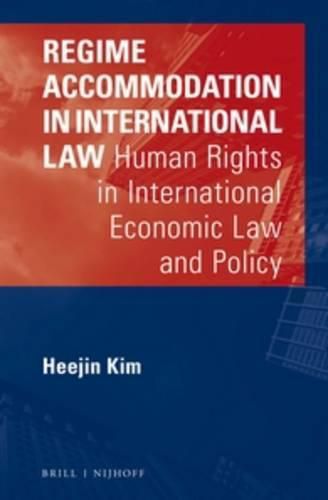Readings Newsletter
Become a Readings Member to make your shopping experience even easier.
Sign in or sign up for free!
You’re not far away from qualifying for FREE standard shipping within Australia
You’ve qualified for FREE standard shipping within Australia
The cart is loading…






In Regime Accommodation in International Law: Human Rights in International Economic Law and Policy, Heejin Kim analyses the ways in which international human rights and economic law interact and conflict across a range of complex issues. These sub-branches of international law are not entirely autonomous; as the author shows, they have been developed in a close relation to each other. International law - imperfect as it is - provides means to resolve the antinomies arising from conflicting rights and obligations under these sub-fields. Against the difficulties of addressing non-economic concerns including human rights in the practice of WTO and foreign investment regime, Kim examines how decision-makers at different stages of international economic policy-making can accommodate, invoke, or reflect human rights in a better way.
$9.00 standard shipping within Australia
FREE standard shipping within Australia for orders over $100.00
Express & International shipping calculated at checkout
In Regime Accommodation in International Law: Human Rights in International Economic Law and Policy, Heejin Kim analyses the ways in which international human rights and economic law interact and conflict across a range of complex issues. These sub-branches of international law are not entirely autonomous; as the author shows, they have been developed in a close relation to each other. International law - imperfect as it is - provides means to resolve the antinomies arising from conflicting rights and obligations under these sub-fields. Against the difficulties of addressing non-economic concerns including human rights in the practice of WTO and foreign investment regime, Kim examines how decision-makers at different stages of international economic policy-making can accommodate, invoke, or reflect human rights in a better way.